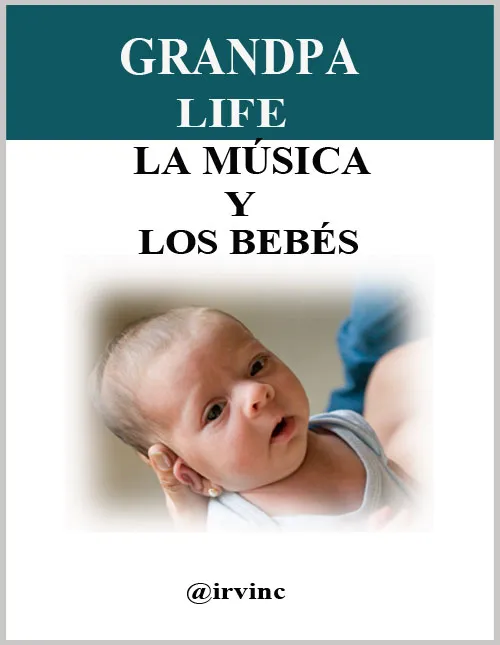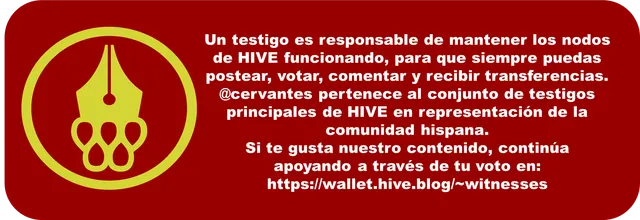
Cuando estaba por nacer mi segundo hijo, por allá en los ochenta, hacía furor el efecto Mozart. Una teoría en la que se explicaban los efectos positivos de la música del compositor austríaco en la mente infantil. Se decía que algunas sonatas compuestas por él tenían la particularidad de estimular ciertas áreas del cerebro, que mejoraban notablemente los procesos cognitivos.
Mi esposa y yo, como cualquier padre, queríamos lo mejor para nuestro hijo, así que asistimos a muchos talleres sobre el tema. En aquel momento, previo al gran desarrollo de internet, esos encuentros presenciales era la única forma de tener información, y no era nada fácil contrastar lo que se obtenía, uno confiaba en la preparación de las personas.
También estaba de moda el asunto de la hiperestimulación, y más de uno recomendaba que la mujer estuviera poniéndose linternas en la barriga, le diera golpecitos con los dedos periódicamente y cosas así, todo con el fin de que el bebé fuera más inteligente.
Así que desde que mi esposa salió embarazada procuramos escuchar todo el tiempo la música de Mozart, lo que fue muy bueno porque después la seguimos escuchando toda la vida.
Algunas de nuestras amigas comenzaron a ponerse audífonos en la barriga, pensando que estaban haciendo algo positivo, tal como lo hacen en las fotos referenciales que ilustran la publicación.

Como mi esposa estudiaba medicina consultó con su profesor de pediatría sobre si era conveniente o no que ella se pusiera los audífonos en la barriga, para que nuestro hijo fuera más inteligente. El doctor era un hombre bastante conservador y su respuesta fue muy convincente.

En relación a toda esa estimulación durante el tiempo intrauterina él manifestó no estar de acuerdo. La razón es muy sencilla: por algo la naturaleza decidió poner al bebé en un sitio bien resguardado, protegido por capas de piel, gruesas capas de grasa y de músculos, y de paso dentro de una bolsa llena de líquido que lo aísla casi totalmente del exterior.
La conclusión era que la naturaleza quería que el bebé se desarrollara allí tranquilito, sin tantas perturbaciones.
Hoy día están mucho más avanzados los estudios sobre el tema, como suele ocurrir siempre habrá opiniones encontradas. Sin embargo, creo que vale la pena apelar también al sentido común. El bebé es un ser en formación, todos sus sistemas son muy sensibles, es lógico que alguna luz indebida pueda dañar las formaciones que posteriormente serán sus ojos, así como también cualquier música a un volumen inadecuado pudiera afectar los sensibles oídos.

Cuando nacieron mis nietas los hijos consultaron con nosotros sobre el tema, porque el efecto Mozart es un tema que sigue en discusión. Nuestra recomendación fue semejante a la que hicimos cuando ellos iban a nacer: poner más música suave, relajante y crear la atmósfera más tranquila para la madre. Le pedimos que por favor no fuesen a inventar ponerse audífonos en la barriga.
La música tiene efectos potentes en el ánimo de la persona y puede lograr que el cerebro entre en estados de relajación. Mi última hija tuvo mal sueño como hasta los tres años. Yo creía que iba a enloquecer porque tenía que trabajar muy temprano y la niña daba mala noche. Mi esposa y yo nos turnábamos, una noche ella dormía en un anexo que tenemos y otra yo, para poder descansar un poco. Nunca quisimos darle a la niña ningún tipo de medicamentos, aunque algunos pediatras lo recomendaron. Lo que hacíamos era ponerle música del compositor japonés Kitaro, a la niña le encantaba. Ella me tomaba de la mano y poco a poco le llegaba el sueño. Luego de los tres años su sueño se normalizó por completo.
Al bebé pequeño le hace bien un ambiente tranquilo, es lo más conveniente para su desarrollo. Si se lo pueden procurar será beneficioso para él/ella.
Gracias por tu tiempo.


When my second son was about to be born, back in the eighties, the Mozart effect was all the rage. A theory that explained the positive effects of the Austrian composer's music on the infant mind. It was said that some sonatas composed by him had the particularity of stimulating certain areas of the brain, which significantly improved cognitive processes.
My wife and I, like any parents, wanted the best for our son, so we attended many workshops on the subject. At that time, before the great development of the internet, those face-to-face meetings were the only way to have information, and it was not easy to contrast what was obtained, one trusted in the preparation of the people.
It was also the fashionable thing to do with hyperstimulation, and more than one recommended that the woman should be putting flashlights on her belly, tapping her fingers periodically and things like that, all in order to make the baby smarter.
So from the time my wife got pregnant we tried to listen to Mozart's music all the time, which was great because we listened to it all our lives afterwards.

Some of our friends started to put headphones on their bellies, thinking that they were doing something positive, as they do in the reference photos that illustrate the publication.
Since my wife was a medical student, she consulted with her pediatrics professor about whether or not it was advisable for her to wear the hearing aids on her belly, so that our son would be smarter. The doctor was a fairly conservative man and his answer was very convincing.
Regarding all that stimulation during the intrauterine time, he said he did not agree. The reason is very simple: for a reason nature decided to put the baby in a well-protected place, protected by layers of skin, thick layers of fat and muscles, and incidentally inside a bag filled with liquid that isolates it almost totally from the outside.

The conclusion was that nature wanted the baby to develop there quietly, without so many disturbances.
Today, studies on the subject are much more advanced, and as usual, there will always be conflicting opinions. However, I think it is also worth appealing to common sense. The baby is a being in formation, all its systems are very sensitive, it is logical that some undue light can damage the formations that later will be its eyes, as well as any music at an inadequate volume could affect the sensitive ears.

When my granddaughters were born, their children consulted with us on the subject, because the Mozart effect is a topic that is still under discussion. Our recommendation was similar to the one we made when they were to be born: play more soft, relaxing music and create the most peaceful atmosphere for the mother. We asked her to please not to invent putting headphones on her belly.
Music has powerful effects on a person's mood and can cause the brain to go into states of relaxation. My last daughter was a bad sleeper until she was about three years old. I thought she was going to go crazy because I had to work so early and she had a bad night. My wife and I would take turns, one night she would sleep in an annex we have and one night I would sleep in an annex so we could get some rest. We never wanted to give the child any kind of medication, although some pediatricians recommended it. What we used to do was to play music by the Japanese composer Kitaro, the child loved it. She would hold my hand and little by little she would fall asleep. After she was three years old, her sleep became completely normal.
A quiet environment is good for a small baby, it is the most convenient for its development. If you can provide it, it will be beneficial for him/her.
Thank you for your time.
Translated with www.DeepL.com/Translator (free version)







Te invito a apoyar este proyecto como witness y a formar parte de esta gran comunidad uniéndote a su Discord en el siguiente enlace:
Discord de la comunidad Cervantes

